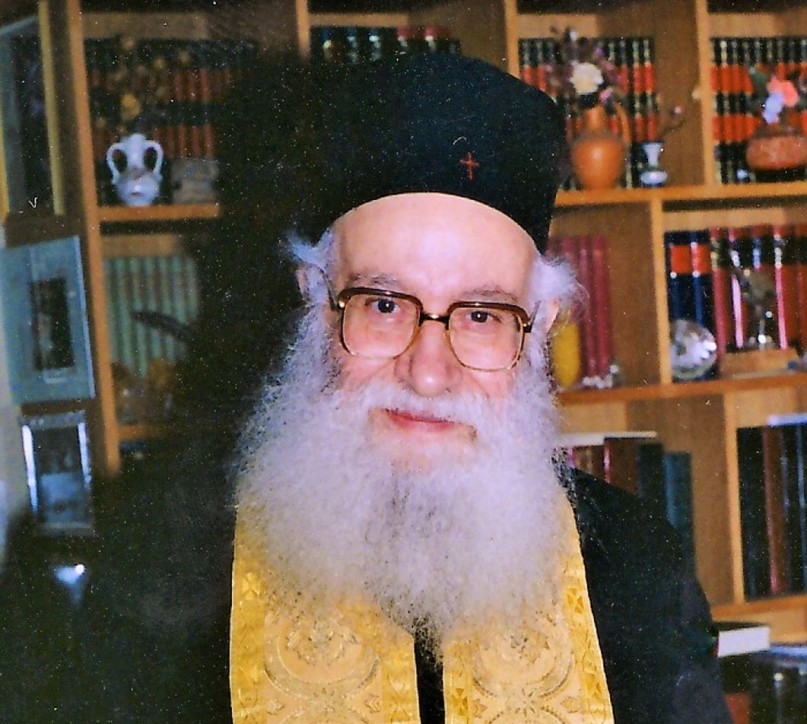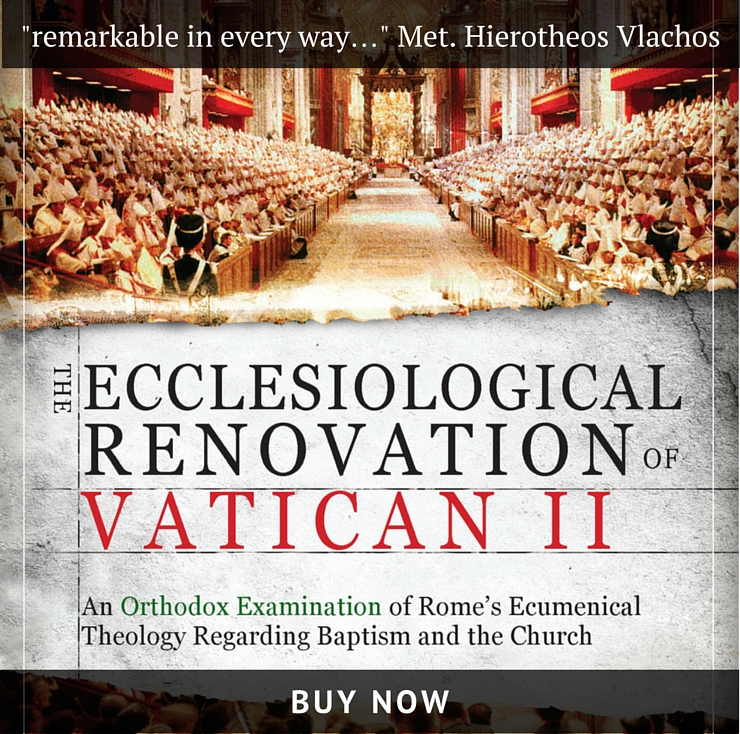When we talk about theosis, being God-like, becoming one with Christ, it means that we enter the life of God which is the very desire of the Creator before all ages. That is why there is a vast difference between Christianity and the average religion. Unfortunately, today most of us live Christianity as a religion and not as a kingdom, and this presents a number of problematic consequences, First, we have separated ethics from doctrine, or the faith from the lifestyle, thereby reducing our faith to a sense of duty. Moreover, today there are people completely unchurched, not even Christians, who in some cases who seek wisdom from the gospel. They may be Buddhists, spiritists, Masons, or agnostics, and still call upon and utilize the moral teachings of the gospel. These people consider Christianity to be a religion with good morality. They think that morality is the central core of Christianity. By doing this, however, we separate and divorce the doctrine from morals.
We often hear women say that their husband who does not attend church is a better Christian than they are. They go on to say that their husband is gentler, calmer, more patient, less angry, and keeps the commandments. The men even point out to their wife, who does attend church regularly, how much nicer they themselves are. After the husband repeats this often enough, the wife, when she is not aware of correct Orthodox praxis (practice) agrees with him. She even advertises the goodness of her husband or her children. "Oh, my children are the best; they really love God. The only thing is that they never step inside a church, but they love Jesus." Now, the issue is not if people are good, better, or excellent. There is no salvation under these circumstances. The wife cannot go to church in place of her husband. We often hear, "Mom goes to church often enough for all of us." Well, this is problematic because it separates doctrine from morality and reduces Christianity to a sense of religious duty.
Is it any wonder Christianity that today does not attract many converts, since it is presented as a religion of rules, regulations and a performance of duty? Today's man hates and despises the idea of duty. He is on duty enough with his work and with all his preoccupations. People also try to separate worship from their lifestyle. Some people think, "Well, I go to church Sunday morning; I give my morning to God; at nighttime I have the freedom to enjoy any entertainment I want." In doing this, we fall into the area of superficial worship. Our heart and our mind are not really involved. We are simply going through the motions. The motions are necessary but, once inside, I must concentrate on the substance, because the substance behind all these forms and motions is what we need to get at. Now, if I do not discover the substance because my life is separated from it then I will be left with a shell. Then I will say, "I must go to church because my mother went to church. I must light my candle, and I must do these things," and so on. Then I end up being a superficial worshipper going through the motions without understanding the essence of these things.
The second setback stemming from reducing Christianity to a religion instead of a kingdom is syncretism, or the tendency to compare Christianity with religions even though we know Christianity as a higher and better form of faith. It is a mistake to compare our faith with other forms of faith. For example, when a young man begins to look at Buddhism, we try to convince him that Christianity is a much better religion, much better than Buddhism or Islam. It becomes a serious mistake the minute we begin to say Christianity is better. We cannot compare. There is no comparison. All the things offered by religions do not free us, nor do they save us. They are all of this world; they are products of human imagination and of the human intellect.
Christianity does not exist to take a stand above the religions but to make disciples of all nations. True Christianity does not say, "Well, there is something good in every religion." No, the truth is that all the religions of the world are works and inspirations of the fallen (demon influenced) human mind. Don't tell me that Buddhism is not the work of demonic influence. At least Buddha lived before Christ and he had an excuse. However, now that the Light came into the world, isn't it a shame for these Eastern peoples to live in darkness? What is worse than this? It is a great and miserable shame for baptized Orthodox Christians in Europe and in the West to become Buddhists, to leave Orthodox spirituality for Eastern philosophy. Christ came to save the lost sheep and to destroy the machinations and deceptions of the demons.
The Lord used very strong language regarding this, All who came before me are thieves and robbers (John 10:8) - all of them! He did not make any distinctions or any exceptions. He did not say, "Oh, the philosophy of Plato was valuable and nice." Or "Buddhism and Confucianism have some wise sayings. They may not be perfect, but they have some wonderful teachings." Or "Yoga and Tai Chi are helpful spiritual exercises," Or "TM (Transcendental Meditation) can be of some help." This type of thinking is very far from the Truth of Christ.
Everyone, everyone that came before me are thieves and robbers. What did they steal? What did they rob? They stole the human soul, which is a possession of the living and true God, and whose place is in the Kingdom of God. This is Christianity! Consider the vision of Nebuchadnezzar, who saw a great statue with bands of various materials: gold, silver, copper, iron, and clay. These bonds are the kingdoms of the earth and religions of the earth as well. Daniel saw a rock cut not by human hand from an unhewn mountain. In the Akathist Hymn to the Theotokos one of the Salutations is, "Rejoice, unhewn mountain." The Most Holy Theotokos is this unhewn mountain in the vision of Daniel. The unhewn rock signifies the virgin birth, and this rock is Christ.
This is how Daniel interpreted this dream of Nebuchadnezzar. A self-propelled rock (Christ) landed at the feet of this statue; He pulverized the statue and turned it to dust. The dust was blown by the wind, and the statue was nowhere to be found. This is Christianity. It did not come to travel and journey along with the other religions or to seek happiness with them here on earth. It came to dissolve the false faiths once and for all. Now, after acknowledging all these truths, all these correct positions of Christianity, how can we compare Christianity to religions? How can we possibly compare it with the false religions of this age? How can we talk about syncretism? Christianity is a kingdom and an inheritance.
-Elder Athanasios Mitilinaios (+2006), Lesson 7, Revelation: The Seven Golden Lampstand, p. 94-97 (italics by editors at Zoe Press; bolding by editors at Orthodox Ethos)
Buy volume one of the Revelation series here: https://www.zoepress.us/revelation-the-books/
________________________________
HAVE YOU BECOME AN OE PATRON?
Sign up for any amount and get full access
Become a patron today and you will have:
- Access to exclusive weekly Q&A sessions
- Access to all previous lectures, including the following which are not available any other way:
- Orthodox Survival Course 2020
- The Truth of Our Faith
- Fr. Seraphim Rose's "Orthodox Survival Course"
- On the Divine Liturgy
- Access to all previous weekly Q&A sessions
- PDF downloads of Lecture slides
- Connect with other Orthodox Christians, possibly in your area
- Exclusive access to our Discourse forum
- The blessing of supporting the many labors of The Orthodox Ethos and Uncut Mountain Press
- And more!
Sign up today!
________________________________
Below you can listen to a reading of this text by our brother at the Orthodox Wisdom youtube channel:



Please be kind, lest your comment go the way of Babylon.